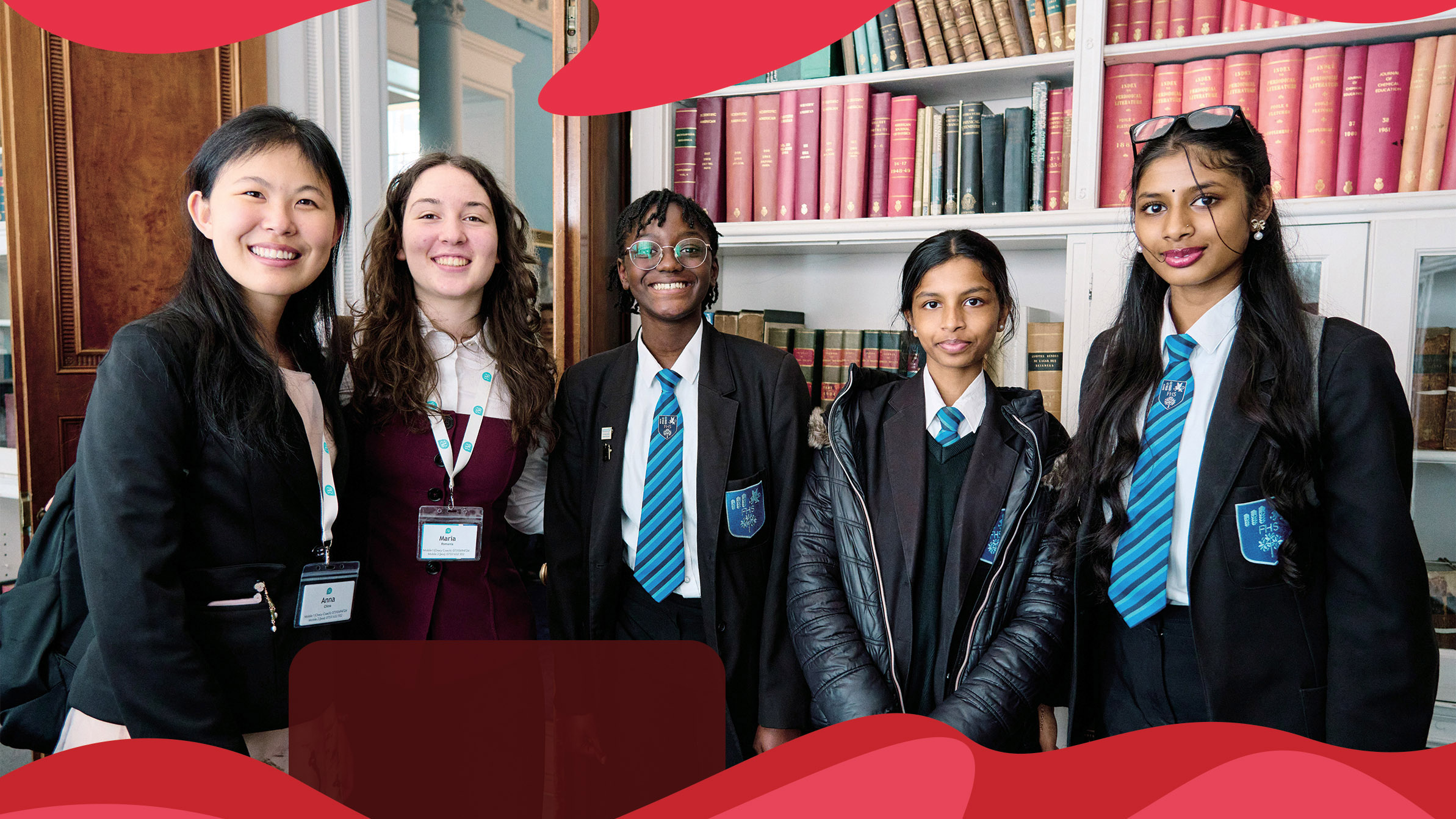Two Chinese teens move London audiences with powerful speeches blending personal stories and national history.

From May 12 to 17, more than 40 young speakers from across the world gathered in London for the International Public Speaking Competition (IPSC), the largest event of its kind.
Among the participants, aged 16 to 20, were two from the Chinese mainland: 19-year-old Jiang Xinyu from Nanjing, Jiangsu province, and 19-year-old Chen Anyi from Hefei, Anhui province.
"The power of public speaking lies in sharing what matters to you with a wider audience," said Jiang. "By stepping onto an international stage, I hope to advocate for the common bonds that unite us as humans, while also sharing China's history and culture with my peers worldwide."
Jiang's words resonated with the audience as she delivered a speech about how four generations of her family passed down their artistic dreams. Her great-grandfather supported the family by painting movie posters for a local cinema, while her grandfather won her grandmother's heart with his art. Jiang's mother, too, showed exceptional artistic talent from a young age.
READ MORE: More than just words
However, this passion for art did not translate into careers. Jiang's great-grandfather advised his son not to become a professional artist, saying, "Don't paint your life into a corner like I did." As a result, her grandfather became a doctor, and her mother followed the same path.
"Many Chinese parents hope their children can secure a stable livelihood before chasing artistic dreams," Jiang explained. "Fortunately, I am now able to continue those dreams."
Initially, Jiang was unsure whether her personal family story — heartwarming yet subtly conflicted — would be truly understood by a global audience. "Many contestants at such events often use international examples to make their messages more universally relatable," she explained.
But after her speech, a contestant from Estonia approached her, expressing that he had struggled to find a deeply personal story that could also connect with others — until he heard hers.
"The theme of intergenerational bonds resonates with families worldwide," Jiang said. "Seeing my message connect with peers from different countries truly made the experience worthwhile."
While Jiang focused on introspective Chinese family ties, Chen took a different approach by placing China's story in a global context.
In his speech, he honored US educator Minnie Vautrin (1886-1941), who heroically sheltered over 10,000 women and children during the Nanjing Massacre in 1937, amid the Chinese People's War of Resistance Against Japanese Aggression (1931-45).
Chen explained that during his preparation, he realized the Nanjing Massacre had not been addressed by previous IPSC contestants. "Many international audiences are unaware of this tragic chapter in history. I wanted to shed light on it," he said.
Coincidentally, Vautrin had once been the principal of Chen's elementary school, adding a personal layer to his speech.
After his speech, several contestants approached Chen, shaking his hand and expressing how deeply moved they were by his words.
"Influencing the world is difficult, but at least I can share this history with more people," Chen said.
A world of connections
Though neither Jiang nor Chen made it to the grand finale, both found something far more valuable than a ranking: a broadened perspective on the world.
"This wasn't just an English competition — it gave me a chance to see life through the eyes of young people from different cultures," said Chen.
He was particularly impressed by the Country Presentation segment, where participants shared stories about their nations.
For his presentation, Chen chose four animal-themed Chinese cultural relics: an eagle-shaped pottery ding (a holding vessel), a bronze rhino-shaped zun (a wine vessel), a tiger-shaped tally, and a dragon pillar.
To help the audience better understand these artifacts, Chen prepared magnets featuring designs of the relics as gifts for each contestant.
One of these gifts led to a meaningful connection with a girl from Mauritius.
"We bonded over extinct species — the dodo birds from Mauritius and China's long-lost wild rhinos, with the zun serving as evidence that these animals once lived in China more than 2,000 years ago," Chen said, adding that he gifted her the magnet featuring the bronze rhino-shaped zun.
"Even though we come from different countries and speak different languages, in that moment, I found common ground between us," he said.
During the same segment, Jiang introduced a Chinese flower-and-bird painting by Emperor Huizong of the Song Dynasty (960-1279).
ALSO READ: Stories, not language, resonate
"When traditional Chinese painting comes to mind, many young people from other countries might see it as abstract, but this painting is deeply grounded in reality," Jiang explained. "It's not only because of its depiction of nature, but because in 2016, a scholar discovered that the pheasant in the painting was a hybrid, confirming the species existed more than 900 years ago."
Jiang also shared the cultural significance of five iconic plants in China — plum, orchid, bamboo, chrysanthemum, and lotus. She hand-painted 20 bookmarks featuring these flowers and wrote her Chinese name, Xinyu, on the back in Chinese characters.
Jiang recalled that she initially introduced herself by her English name, as her Chinese name was difficult for English speakers to pronounce. However, after the presentation, many contestants approached her and asked, "How do you say your name in your mother tongue? What does it mean?"
"The next time we met, they all tried calling me by my Chinese name first," Jiang said. "When people from different cultures make the effort to understand you personally, they often develop a genuine interest in your background too. That's when true heart-to-heart communication starts."
Contact the writer at mengwenjie@i21st.cn


